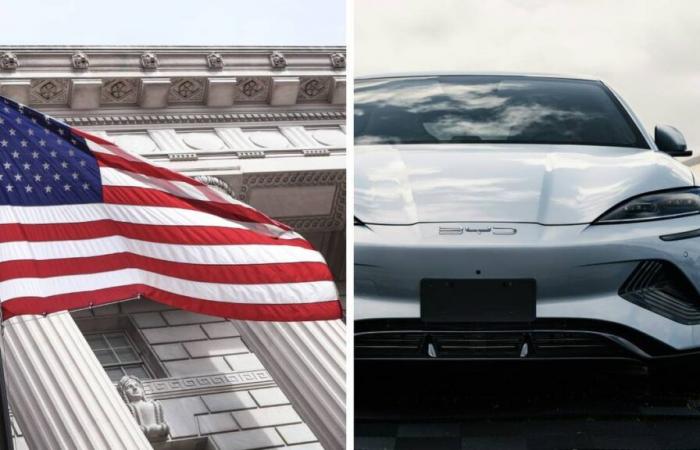News JVTech After chips and TikTok, the United States attacks China by banning its cars
Published on 01/15/2025 at 6:30 p.m.
Share :
A new regulation, which came into force on January 14, 2025, purely and simply prohibits the sale of connected electric vehicles of Chinese origin on American soil, in the name of national security.
A new turning point in the China/United States standoff
Washington’s decision to ban Chinese electric cars comes against a backdrop of increased technological rivalry between the two powers – the chip industry and TikTok had already launched hostilities. “The Department of Commerce has issued a final rule that will prohibit the sale and importation of connected vehicle hardware and software, as well as complete connected vehicles, from the PRC and Russia. » American authorities fear that connected vehicles, true concentrates of digital technologies, could be used for espionage purposes.
Modern cars are veritable rolling data centers, equipped with cameras, microphones and GPS. In the wrong hands, these technologies could become formidable espionage tools. Gina RaimondoUS Secretary of Commerce
Photo credit: Polestar
This measure, which will gradually come into force: a first phase, from 2027, will concern software, while a second, in 2030, will concern hardware of Chinese origin. It should be noted that the place of production is not the only determining criterion. Indeed, even assembled in the United States, cars controlled by Chinese entities will be affected. This is particularly the case for Polestar and Volvo, two brands belonging to the Chinese group Geely, which could be prohibited from marketing their vehicles on American territory.
A chain impact on the automotive industry
The consequences of this decision could be considerable for the global automobile industry. China is the world’s largest automobile exporter and many manufacturers, including American ones, depend on its supply chains. Indeed, although major American manufacturers like Ford and GM publicly display their support for this new regulation, behind the scenes they express serious concerns about its implementation. Implementing this measure could result in significant logistical complexities and additional costs for businesses.
American consumers could also be the losers of this new regulation. By limiting the choice of electric vehicles available on the market, the United States risks slowing down the energy transition and increasing prices. In addition, this decision could slow down the development of innovative technologies, such as autonomous cars, which already offer many advantages in terms of mobility in cities like San Francisco.






